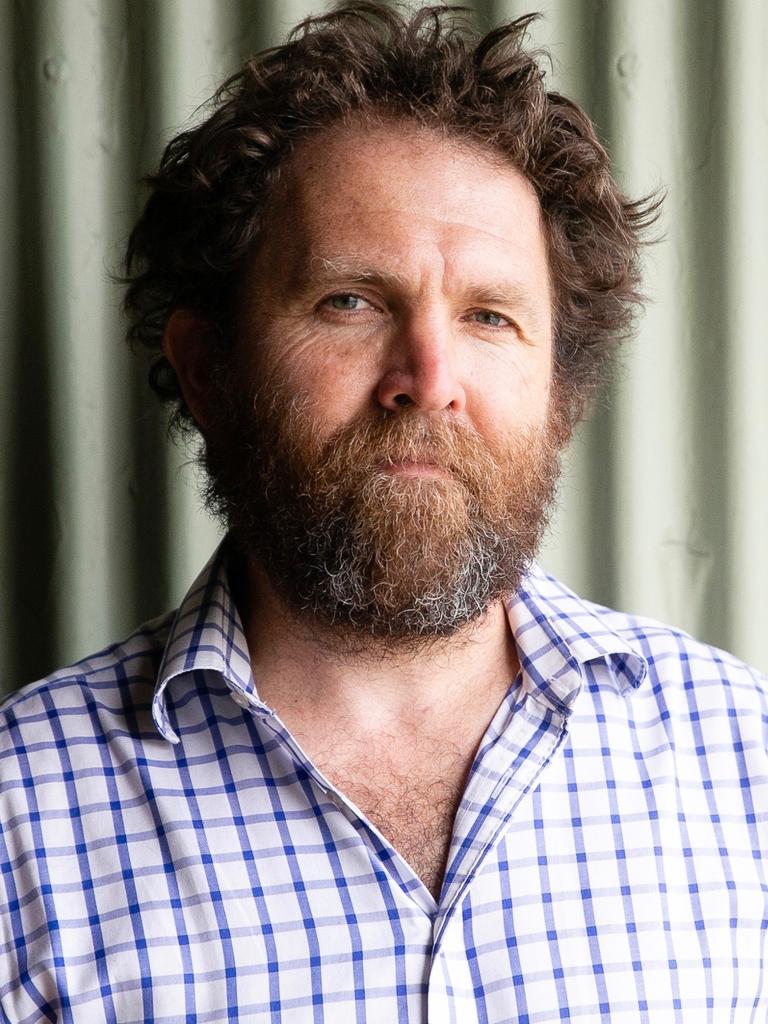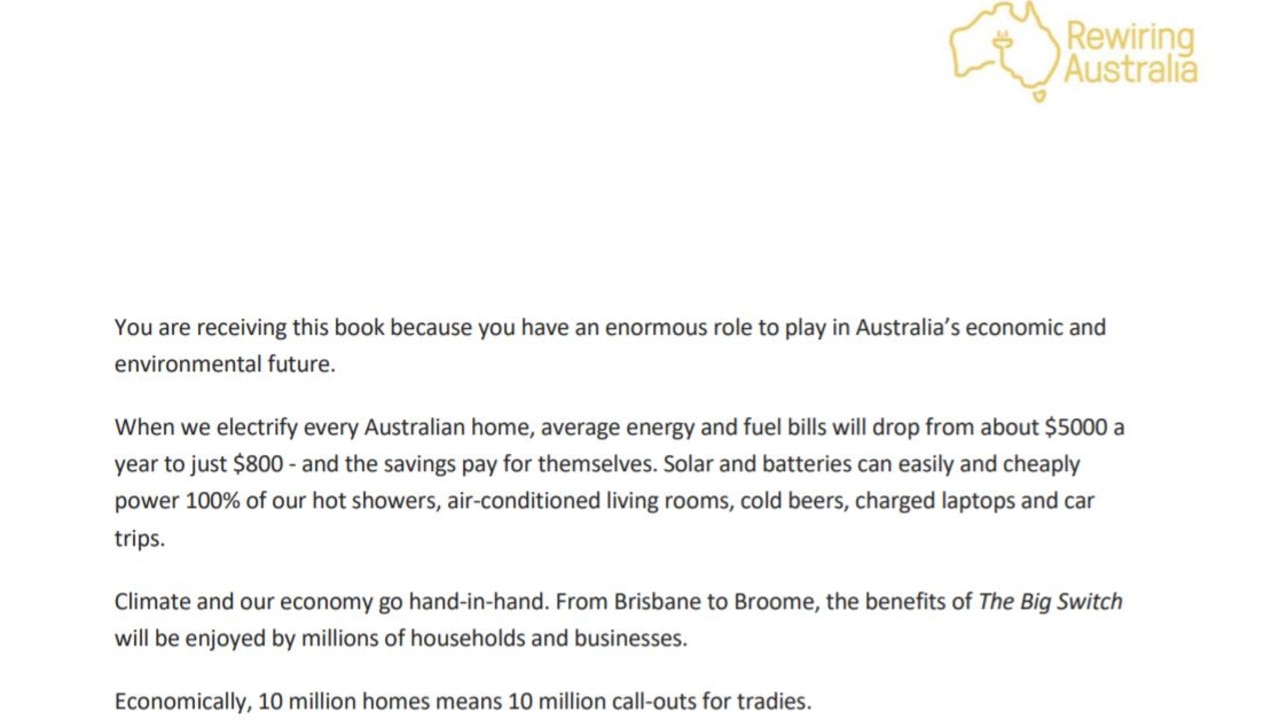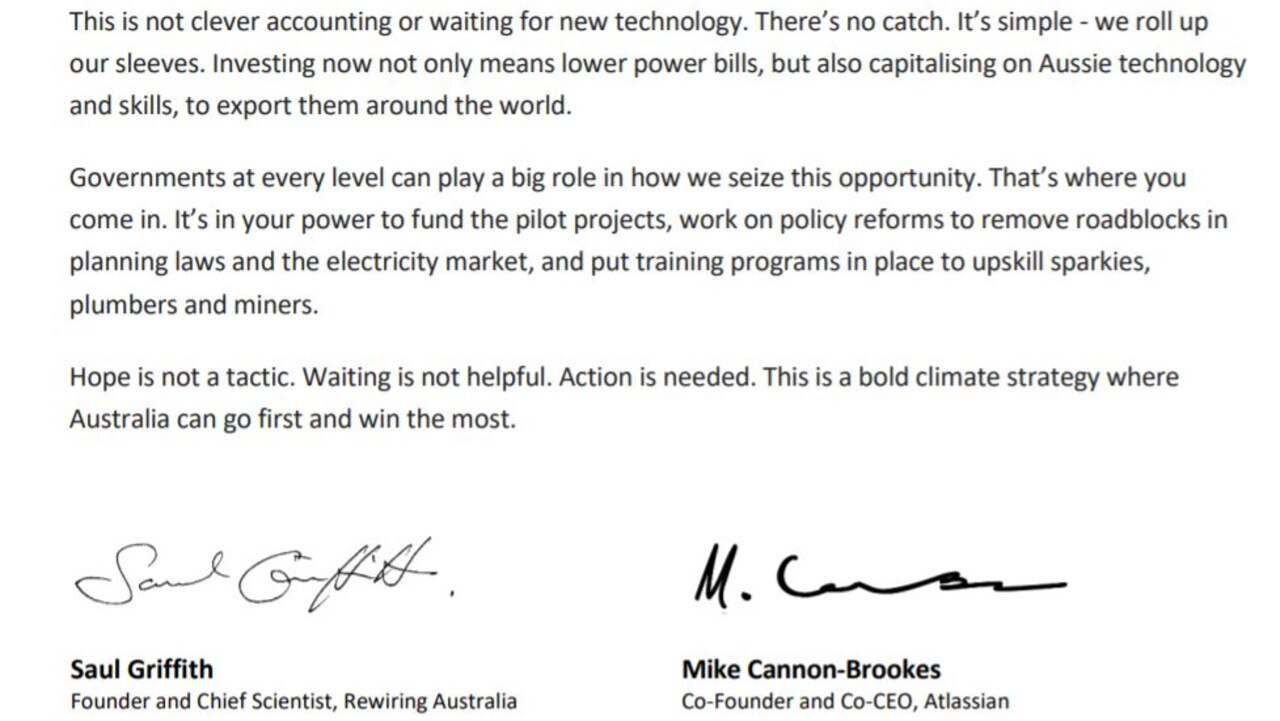Billionaire’s letter urges Australian politicians to act on $4200 saving to households
Billionaire Mike Cannon-Brookes has pointed out politicians are blocking Australian households from saving $4200 a year.

EXCLUSIVE
Billionaire Mike Cannon-Brookes has sent a letter to every federal politician urging them not to miss the opportunity to save Australian households around $4200 a year.
The letter, co-signed by entrepreneur and former expert to the Biden White House, Saul Griffith, pointed out the huge savings Aussies were missing out on.
“When we electrify every Australian home, average energy and fuel bills will drop from about $5000 a year to just $800 – and the savings pay for themselves,” the letter states.
Mr Griffith, who wrote book The Big Switch about the potential benefits of electrification, told news.com.au that electric cars powered by rooftop solar only cost between 1-2 cents a kilometre to run, compared to 2-3c if they are powered off grid electricity, or between 10-20c using petrol or diesel.
“We delayed our climate action by pretending there was a bunch of options but there really is only one way to eliminate emissions from our domestic economy — and that’s through the electrification of our homes and vehicles,” Mr Griffin said.
“If Australia does that quickly and well, we can save a lot of money.
“We want to make sure Australian politicians on both sides, at both state and federal levels, understand the opportunity that Australia has to lead on climate action.”
Mr Griffith, who has been hailed as a “genius” and recently returned to live in Australia after spending time as a successful entrepreneur of energy and robotics companies in the United States, said rather than waiting for the market to develop slowly, there should instead be training now in the skills required to service the transition to electric cars, batteries, heating and kitchen appliances, because the country would save money sooner.
“The price of EVs, batteries and (electric) kitchens is going to be competitive in about 2024 in Australia and everyone will want them,” Mr Griffith said.
“So we should be running pilots and testing their capacity to roll them out as fast as possible, because that is the only way we are going to meet our goal of keeping warming to 1.5C to 2C.”


In their letter Mr Griffith and Mr Cannon-Brookes tell the politicians: “It’s in your power to fund the pilot projects, work on policy reforms to remove roadblocks in planning laws and the electricity market, and put training programs in place to upskill sparkies, plumbers and miners.
“Hope is not a tactic. Waiting is not helpful. Action is needed. This is a bold climate strategy where Australia can go first and win the most.”
Mr Griffith said governments needed to help build up the industry for electrification, in much the same way it had fostered the development of rooftop solar.
“Ten years ago, solar was very expensive and the uptake was slow but the government helped build up that industry … and now 30 per cent of households have it,” Mr Griffith said.
“There is a government role to help pay for it in the short term, and in the long term it is the cheapest option for every Australian.”
Mr Griffith said the letter was the result of a “genuine coming together” with Mr Cannon-Brookes.
“Both Mike and I are in the fortunate position of being able to care about the larger issues,” Mr Griffith said.
“Mike has been here (in Australia) for a long time agitating on climate and I have just returned from America.
“As concerned Australians we see the huge possibility … and we want to make sure the country doesn’t miss that opportunity.”
Mr Griffith said many Australians are yet to realise the urgency of the transition that needs to happen within households to achieve climate targets, partly because the focus has so far been on shutting down coal use and production, not on cleaning up our own homes and suburbs.
“A new picture of the world will happen quickly and if we are bold, our economy should do extremely well from this transition.”


Leading energy analyst Honorary Associate Professor Hugh Saddler of the Australian National University has previously told news.com.au policies were needed to ensure gas appliances were being replaced with electric versions.
He said gas heating systems had an expected life of around 20 years and people buying these systems now were locking in emissions for the next two decades.
Reverse cycle airconditioning, solar hot water systems and induction cooktops can replace gas heating, hot water and stovetops.
“There is no need for gas in households at all,” Prof Saddler said.
Read related topics:Time Is Now






